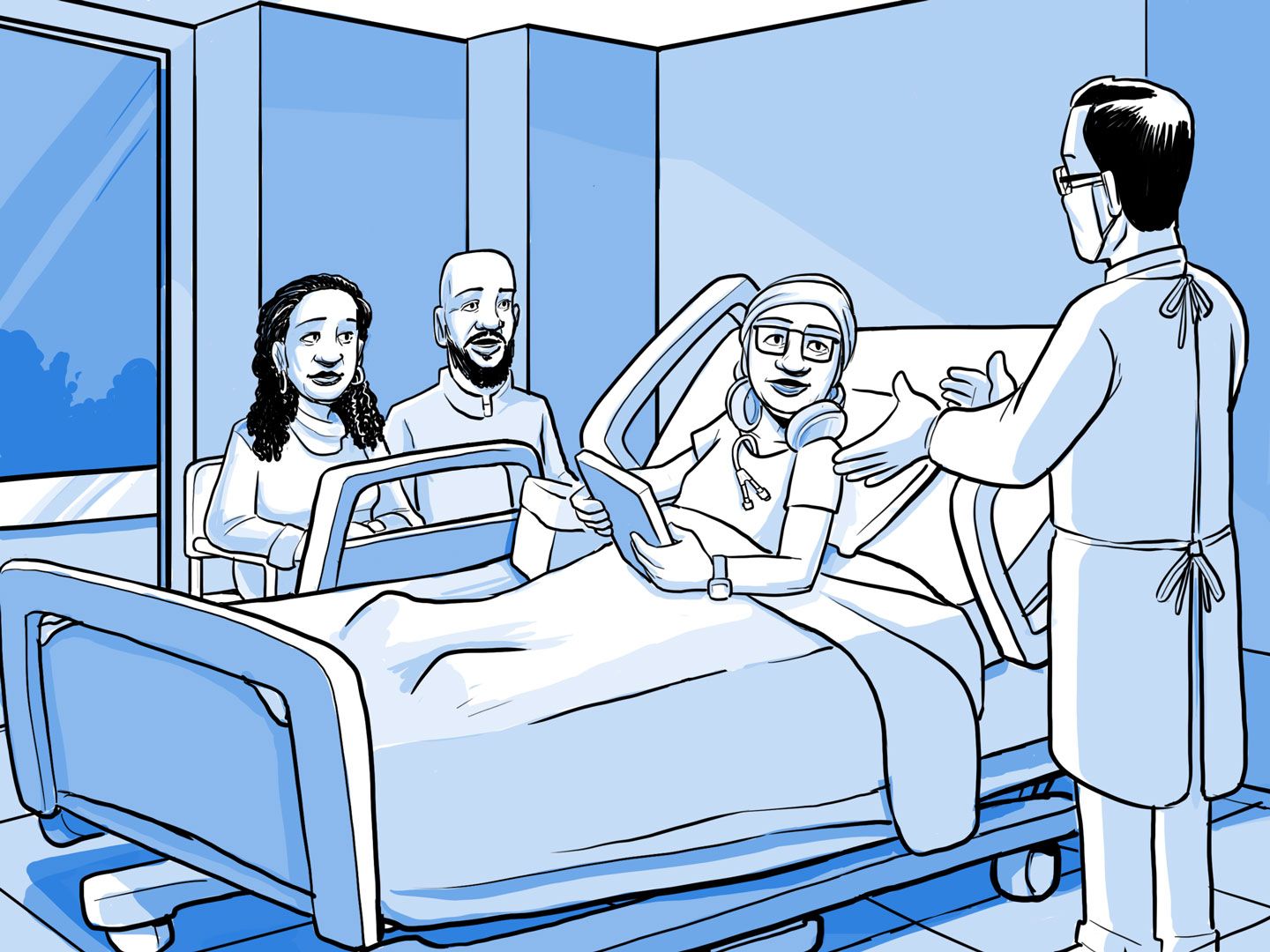For the next 5 weeks
For the next 5 weeks
You will stay in the hospital for another 3 to 5 weeks.
During this time, your genetically-changed stem cells start growing and making new blood cells.
This is called engraftment.
Your doctors will watch for problems.
- You can have liver problems: veno-occlusive disease (VOD) or sinusoidal obstruction syndrome (SOS).
- You can get very sick from germs, because you are immunosuppressed (unable to fight germs).
Gene therapy does not have some problems that you can have with bone marrow transplant.
- With gene therapy, there is no risk of graft rejection. But the genetically-changed stem cells may fail to grow in your body. Gene therapy is very new and doctors are still learning about it.
- With gene therapy, there is no risk of graft versus host disease.
- You do not need to take immunosuppressive medications after gene therapy.
Engraftment is when your genetically-changed stem cells become part of your body.
After the genetically-changed stem cells are put into your blood, they travel to where your bone marrow is inside your bones.
- The cells become your new bone marrow.
- They grow and multiply.
Your stem cells will make new blood cells:
- Red blood cells. They will be healthy ones, not sickle cells. These carry oxygen to all the other cells in your body.
- White blood cells. These fight germs and are also called immune system cells.
- Platelets. These help your blood clot (stop bleeding) when you have a cut.
Veno-occlusive disease (VOD) is a common problem.
- Chemotherapy can damage your liver (a part of your body that cleans your blood) and this can cause veno-occlusive disease.
- People who have a lot of iron from blood transfusions or people who have liver fibrosis are at a higher risk for veno-occlusive disease.
- Your doctors will watch for signs: your skin or eyes turn yellow, you gain weight, your body keeps too much fluid (water) inside, or your liver gets big.
- Your doctors know how to stop or treat veno-occlusive disease. They can give you medicine (defibrotide, ursodiol, or heparin). They may also limit the amount of fluid (water) they give you.
- Even with treatment, some people can also die from uncontrolled veno-occlusive disease (VOD).
You will be very immunosuppressed (unable to fight germs).
- Chemotherapy kills your unchanged stem cells. This means you will not have enough white blood cells (immune system cells) for a few months.
- Your genetically-changed stem cells will start making new white blood cells, but you can still get very sick from germs for a few weeks or months after chemotherapy.
- For the first few weeks, you are at the highest risk of getting very sick from germs. In the hospital, they take extra care to keep germs away from you.
- Your doctors will also give you medicine to fight germs.
With gene therapy, you are not as immunosuppressed (unable to fight germs) as you would have been with a bone marrow transplant.
You do not need to take immunosuppressive medications to protect you from graft versus host disease after gene therapy. This is because the genetically-changed stem cells come from your own body.
